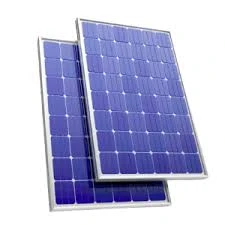Exploring the Benefits and Innovations of Hybrid Solar Energy Solutions
The Rise of Hybrid Solar Technology A Sustainable Future
In recent years, the demand for sustainable energy solutions has surged, leading to innovation and advancements in renewable technologies. One such advancement is hybrid solar technology, which combines traditional photovoltaic (PV) solar panels with other energy generation systems, such as solar thermal systems and energy storage solutions. This integration not only enhances the efficiency of solar energy utilization but also provides a more reliable and consistent energy source. As we explore the multifaceted benefits of hybrid solar systems, it becomes clear how they could pave the way toward a more sustainable future.
Understanding Hybrid Solar Technology
At its core, hybrid solar technology merges different energy generation methods to maximize energy output and optimize performance. A typical hybrid solar system incorporates both solar PV panels, which convert sunlight directly into electricity, and solar thermal components, which harness the sun's heat to produce hot water or steam. By integrating these two technologies, systems can ensure that energy generation is maximized throughout the day, regardless of weather conditions or time of year.
For example, during sunny days, solar PV panels generate electricity efficiently, while on cloudy days, solar thermal systems can continue to produce hot water, ensuring a steady energy supply. Additionally, advancements in battery storage technology allow excess energy generated during peak sunlight hours to be stored for later use, further improving energy reliability.
Environmental Impact
One of the most significant advantages of hybrid solar technology is its potential to reduce carbon footprints and combat climate change. By decreasing reliance on fossil fuels, hybrid solar systems contribute to lower greenhouse gas emissions. Moreover, using hybrid systems can lead to better land use, as they can be implemented in various settings, including residential, commercial, and industrial applications, without requiring additional land for separate energy sources.
As a result, hybrid solar systems not only support energy independence but also play a crucial role in the global transition toward a cleaner and more sustainable energy landscape
. By harnessing the sun's abundant energy and combining it with energy storage capabilities, we can significantly reduce the environmental impact associated with traditional energy production.hybrid solar

Economic Advantages
In addition to environmental benefits, hybrid solar technology offers several economic advantages. As solar technology has evolved, the costs of photovoltaic panels have steadily decreased, making solar energy more accessible to a wider audience. Furthermore, integrating battery storage into hybrid systems allows for reduced peak demand costs and better energy management, leading to potential savings on electricity bills.
Government incentives, such as tax credits and rebates, for adopting renewable energy systems further enhance the financial viability of hybrid solar solutions. These incentives not only encourage individuals and businesses to invest in sustainable energy but also support the growth of the green economy, creating jobs and fostering innovation in the renewable energy sector.
Future Prospects
The future of hybrid solar technology looks promising as research and innovation continue to evolve. The integration of smart technologies, such as AI and IoT, allows for better energy management and system optimization, providing users with real-time data on energy usage and generation. This not only enhances efficiency but also empowers users to make informed decisions regarding their energy consumption.
Furthermore, as battery storage technology improves, we can expect hybrid solar systems to become increasingly efficient and cost-effective. This will make them an attractive option for energy consumers looking to mitigate their environmental impact while ensuring a reliable power supply.
In conclusion, hybrid solar technology represents a significant leap forward in our quest for sustainable energy solutions. Coupling solar PV with thermal systems and energy storage creates a versatile and efficient means of harnessing the sun’s energy. With its numerous environmental and economic benefits, hybrid solar technology is not just a temporary trend but rather a crucial component in shaping a sustainable future for generations to come. By investing in and adopting hybrid solar solutions, we take meaningful steps toward a cleaner, greener, and more resilient energy landscape.
-
String Solar Inverter: The High-Efficiency Solution for Smart Solar EnergyNewsJul.14,2025
-
Revolutionizing Rooftop Energy with the Power of the Micro Solar InverterNewsJul.14,2025
-
Power Independence with Smart Off Grid Solar Inverter SolutionsNewsJul.14,2025
-
On Grid Solar Inverter: Powering the Future with Smart Grid IntegrationNewsJul.14,2025
-
Monocrystalline Solar Panels: High-Efficiency Power for the Future of Clean EnergyNewsJul.14,2025
-
Bifacial Solar Panel: A Smarter Investment for Next-Generation Energy SystemsNewsJul.14,2025







